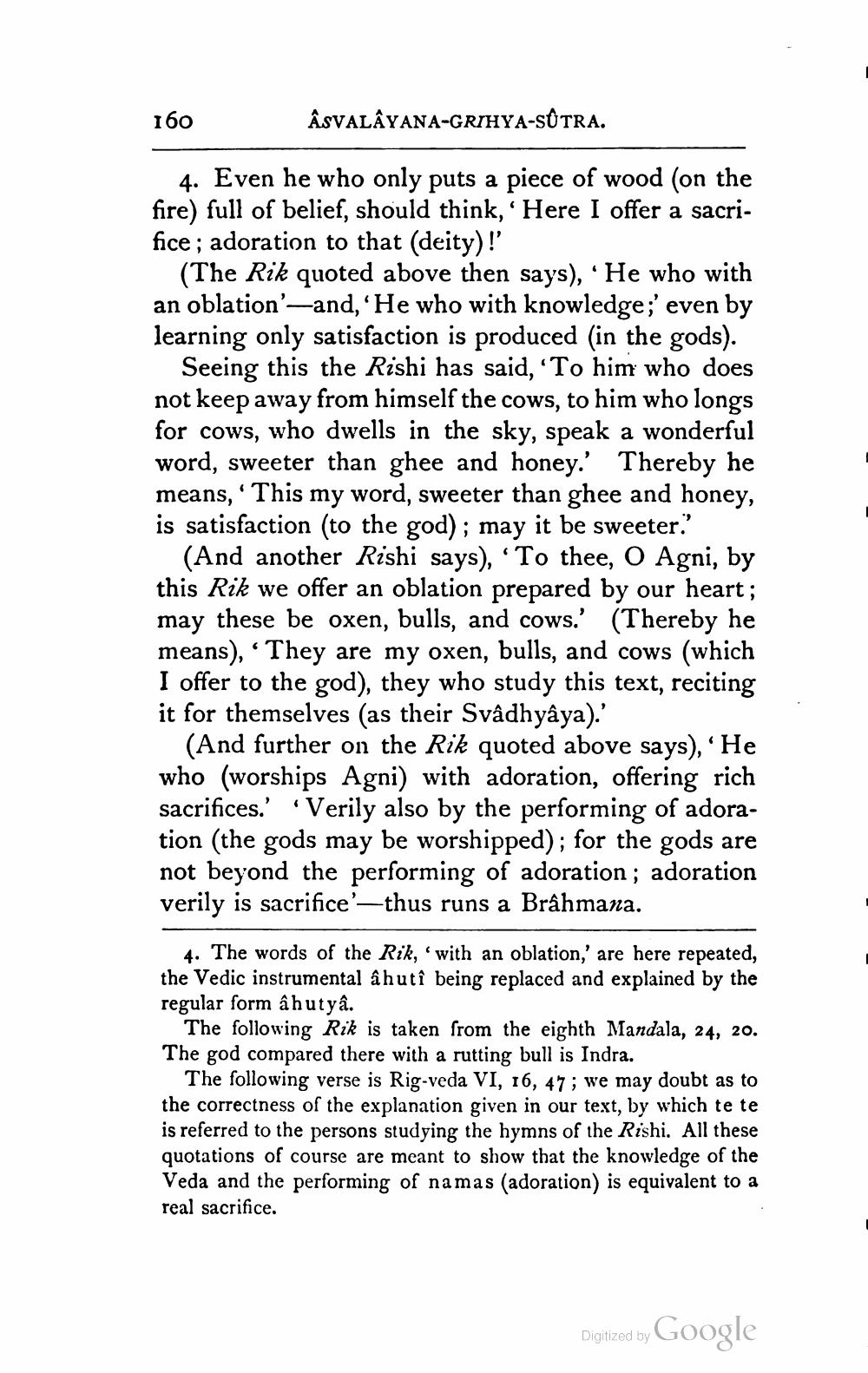________________
ASVALÂYANA-GRIHYA-SUTRA.
4. Even he who only puts a piece of wood (on the fire) full of belief, should think, ' Here I offer a sacrifice; adoration to that (deity)!'
(The Rik quoted above then says), ' He who with an oblation'-and, 'He who with knowledge;' even by learning only satisfaction is produced (in the gods).
Seeing this the Rishi has said, 'To him who does not keep away from himself the cows, to him who longs for cows, who dwells in the sky, speak a wonderful word, sweeter than ghee and honey.' Thereby he means,' This my word, sweeter than ghee and honey, is satisfaction (to the god); may it be sweeter.'
(And another Rishi says), 'To thee, O Agni, by this Rik we offer an oblation prepared by our heart; may these be oxen, bulls, and cows.' (Thereby he means), 'They are my oxen, bulls, and cows (which I offer to the god), they who study this text, reciting it for themselves (as their Svâdhyâya).'
(And further on the Rik quoted above says), 'He who (worships Agni) with adoration, offering rich sacrifices.' 'Verily also by the performing of adoration (the gods may be worshipped); for the gods are not beyond the performing of adoration; adoration verily is sacrifice'-thus runs a Brahmana.
160
(
4. The words of the Rik, with an oblation,' are here repeated, the Vedic instrumental âhutî being replaced and explained by the regular form âhutyâ.
The following Rik is taken from the eighth Mandala, 24, 20. The god compared there with a rutting bull is Indra.
The following verse is Rig-veda VI, 16, 47; we may doubt as to the correctness of the explanation given in our text, by which te te is referred to the persons studying the hymns of the Rishi. All these quotations of course are meant to show that the knowledge of the Veda and the performing of namas (adoration) is equivalent to a real sacrifice.
Digitized by Google




